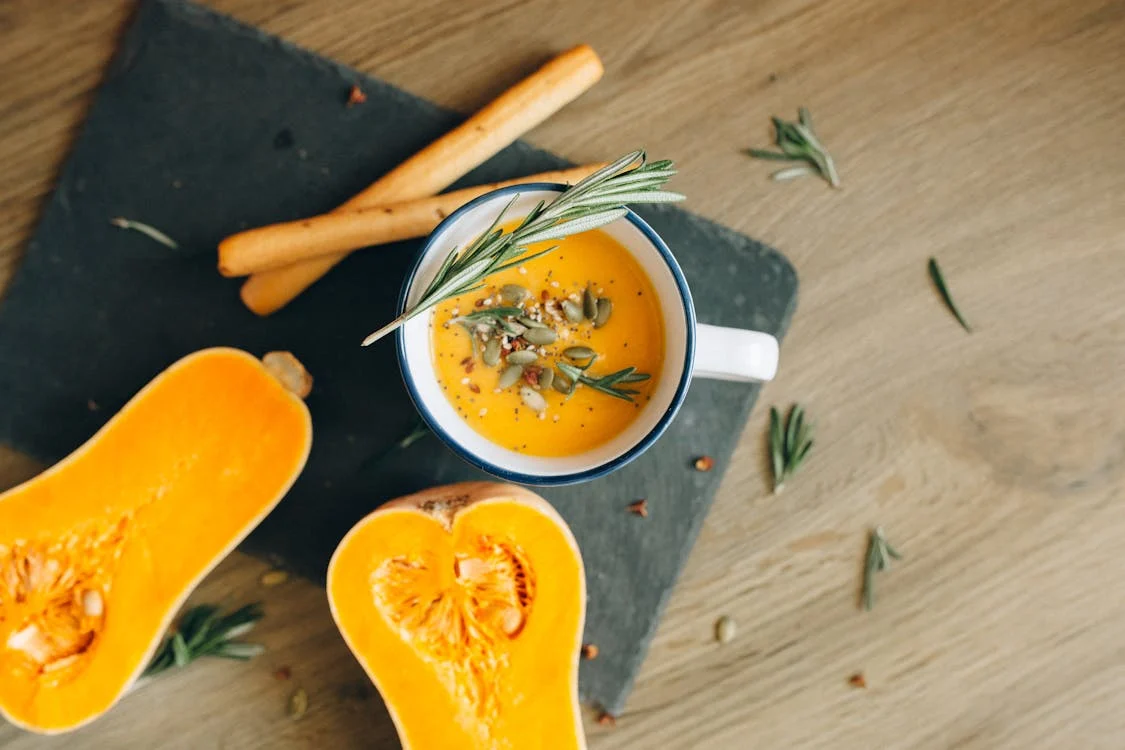 Mind
Mind
- Digital and Modern Well-being
- Mental Health and Emotional Well-being
- Mind-Body Connection and Holistic Health
- Parenting and Family
- Personal Growth and Development
- Relationships and Social Well-being
- Stress and Relaxation
- Therapeutic and Creative Practices
- Trauma and Recovery
- Work, Productivity, and Discipline
 Body
Body
 Fitness
Fitness
 Food
Food
 Beauty
Beauty
Benefits of Cooking with Herbs

Cooking with herbs is a timeless culinary tradition that not only enhances the flavour of dishes but also provides a wealth of health benefits. Whether fresh or dried, herbs are nutrient-rich and have been used for centuries in various cultures for their medicinal and aromatic properties. Incorporating herbs into your cooking can elevate meals while promoting overall wellness.
Nutritional and Health Benefits of Herbs
1. Rich in Antioxidants
Many herbs, such as oregano, thyme, and basil, are loaded with antioxidants. These compounds help protect the body from oxidative stress and reduce the risk of chronic diseases like heart disease and cancer.
2. Boosts Immunity
Herbs like garlic, ginger, and turmeric are known for their immune-boosting properties. Regular consumption can help strengthen your body’s natural defences against infections and illnesses.
3. Supports Digestion
Certain herbs, such as mint, fennel, and coriander, aid digestion by reducing bloating, easing stomach discomfort, and improving gut health.
4. Reduces Inflammation
Herbs like turmeric and rosemary contain anti-inflammatory compounds that can alleviate symptoms of arthritis, muscle pain, and other inflammatory conditions.
5. Enhances Mental Health
Herbs such as sage and lavender are known for their calming effects, helping to reduce stress and improve mood. Rosemary has also been linked to improved memory and cognitive function.
6. Low-Calorie Flavour Enhancers
Herbs add robust flavours to meals without the need for calorie-heavy ingredients like butter or cream, making them a healthy choice for weight management.
Popular Culinary Herbs and Their Unique Benefits
- Basil: Rich in vitamin K and a natural anti-inflammatory, it’s great for heart health and managing stress.
- Parsley: High in vitamin C and iron, parsley supports the immune system and promotes healthy skin.
- Cilantro (Coriander): Known for its detoxifying properties, it helps remove heavy metals from the body.
- Rosemary: A potent herb for memory and concentration, it also aids digestion and reduces inflammation.
- Thyme: Contains thymol, which has antibacterial and antifungal properties, making it excellent for boosting immunity.
- Oregano: Packed with antioxidants, it supports heart health and combats infections.
- Mint: A natural remedy for indigestion, headaches, and respiratory issues.
- Dill: Known for its calming effects and ability to reduce bloating.
How Cooking with Herbs Benefits Your Culinary Experience
1. Depth of Flavour
Herbs can transform a simple dish into a gourmet experience. For instance, rosemary adds earthy richness to roasted potatoes, while fresh mint elevates desserts and beverages.
2. Versatility in Cooking
From soups and salads to marinades and baked goods, herbs can be used in countless recipes, adding both flavour and nutritional value.
3. Encourages Healthier Eating
By using herbs as flavour enhancers, you can reduce the need for excess salt, sugar, and unhealthy fats in your meals.
4. Creative Expression
Cooking with herbs encourages experimentation, allowing you to explore unique flavour combinations and cuisines from around the world.
Tips for Cooking with Herbs
-
Use Fresh Herbs When Possible
Fresh herbs provide a more vibrant flavour, though dried herbs are a great alternative for longer cooking times. -
Add at the Right Time
- Add hardy herbs (e.g., rosemary, thyme) early in cooking for a deeper flavour.
- Add delicate herbs (e.g., basil, parsley) at the end to preserve their freshness.
-
Pair Herbs with the Right Ingredients
- Basil pairs wonderfully with tomatoes and mozzarella.
- Rosemary complements roasted meats and vegetables.
- Mint is perfect for desserts and refreshing drinks.
-
Experiment with Homemade Blends
Create your own herb mixes like Italian seasoning, za’atar, or herbes de Provence to elevate your dishes. -
Grow Your Own Herbs
Cultivating a small herb garden at home ensures fresh herbs are always within reach.
Beyond the Kitchen: Other Uses of Herbs
In addition to cooking, herbs have a range of uses, including:
- Herbal Teas: Chamomile, peppermint, or lemon balm teas are calming and digestive aids.
- Natural Remedies: Echinacea and elderberry are used to combat colds and flu.
- Aromatic Infusions: Herbs can be used to make flavoured oils, vinegars, or even skincare products.
Conclusion
Cooking with herbs is a simple yet impactful way to enrich your meals while reaping numerous health benefits. Their ability to add complexity to flavours, boost nutritional content, and support overall wellness makes them an indispensable addition to any kitchen. Whether you’re simmering a hearty stew, tossing a fresh salad, or preparing a comforting tea, herbs can transform your culinary creations and nourish both body and soul.
